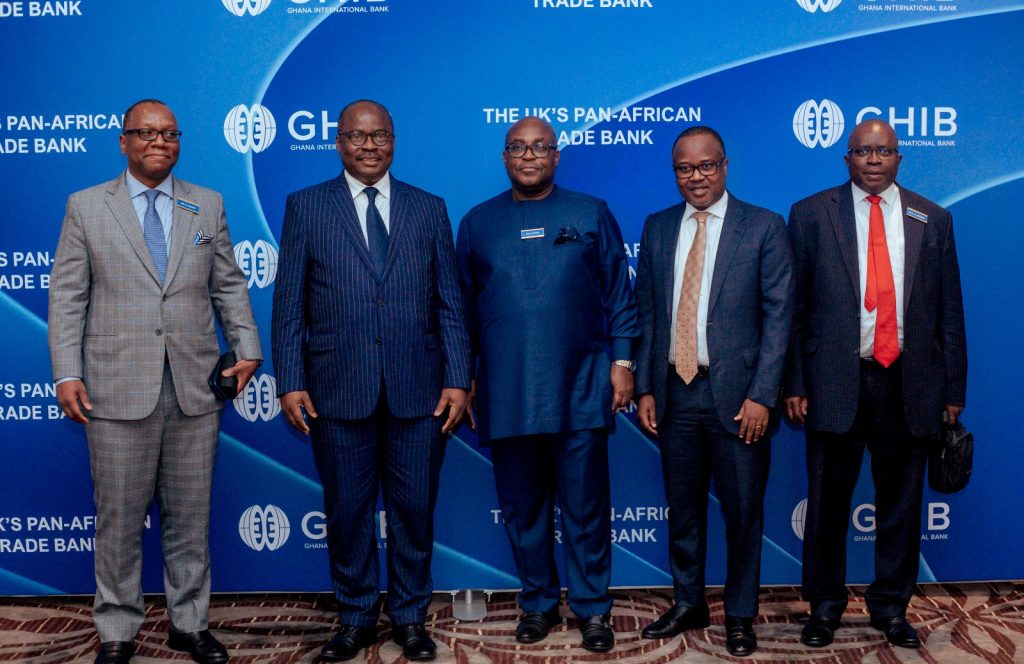By Francis Ntow
Accra, March 20, GNA – The Ghana International Bank (GHIB) has renewed its commitment to bridge Africa’s US$100 billion trade financing gap, and support the achievement of the African Continental Free Trade Area (AfCFTA) initiative.
The international trade finance institution made this commitment at the launch of its 65th anniversary on Tuesday evening, March 19, at the Kempinki Hotel – Gold Coast City, in Accra.
“We’re poised to become much bigger and to achieve more scale and more consequential in trade finance across sub-Saharan Africa,” Mr Dean Adansi, Chief Executive Officer (CEO), GHIB, said in an interview with the Ghana News Agency.
He said the bank had repositioned itself to increase its support activities in corporate and institutional banking, retail and small business banking, and mitigate risks for importers, exporters and suppliers in Ghana and other African countries.
“We want people to think about GHIB in the future as a major provider of trade finance, a major correspondent bank, and as a bank that have an impact on the lives of people across markets,” Mr Adansi said.
He also said the bank would commit more to supporting the achievement of AfCFTA, because GHIB sees the pact as one that would promote intra-African trade significantly.
“It makes a lot of sense for that kind of cooperation to take place and tariffs and barriers to be broken down so they can be more trade, which will help create wealth across our markets,” he said.
Looking back on the bank’s six-and-a-half decade journey, Mr Adansi said GHIB’s story has been one of resilience, with the bank been able to go through various phases of difficulties.
“We’ve gone through many trying times; recessions, macroeconomic difficulties, oil crisis, global financial crisis and we’re still here. So, it means we are resilient bank,” he said.
The Chief Executive Officer, however, noted that through all those difficult times, GHIB continued to be a reliable institution in Ghana and elsewhere in sub-Saharan Africa.
“Without GHIB’s support for Ghanaian financial institutions, it would have been difficult for some of them to survive. We provide them with trade finance, lend to them short-term and long-term basis, and provide them with advice,” he said.
“The lessons learned are that, you have to manage your risk properly whether is credit risk or prudential risk or operating risk, by treating your clients well, and having a strong balance to stand shocks,” Mr Adansi stated.

Dr Ernest Addison, Chairman of the Board of Directors for GHIB, and Governor of the Bank of Ghana (BoG) lauded the bank for evolving into a transnational banking institution, with footprints across West and East Africa.
“In 2023, for instance, GHIB intermediated over US$8 billion in payments for financial institutions in West Africa,” Dr Addison said.
He indicated that in Ghana, the bank has provided critical documentary collection services to the Ghana Cocoa Board (COCOBOD) over the last 25 years in support of the nation’s cocoa export business.
The Governor also stated that the philanthropic activities of the bank’s had been helpful in alleviating hardship in rural communities, schools, hospitals, and other deprived areas of the Ghanaian society.
He encouraged the bank to continue to play a critical role in the transformation of trade in Africa and rise to greater heights in the coming years as the continent navigate through the challenges and complexities of the global financial markets.
GNA